[삼겹살]Do You Know How To ADHD Medication List? Learn From These Simple Tips
41
2022.11.11 05:17
짧은주소
본문
This is a complete ADHD medication list that includes stimulants, non-stimulants as well as particular considerations. This article will review the various ADHD medications and their effects on the body as well as interactions with other medications. Below is a list of the most frequently prescribed drugs. Visit the American Academy of Pediatrics' official website to find out more about ADHD medications. It's also important to know how to use the ADHD medication list and what you need to take into consideration before taking a medication.
Stimulants
There are many types of ADHD medication. The most popular is a stimulant. These medications have the highest rate of success, but they also are not without risk, including adverse effects and the possibility of abuse. Non-stimulants on the other side, are slow to improve the symptoms of ADHD. These drugs help improve concentration and impulse control however, they must be taken every day and the results could take several weeks.
The misuse of prescription stimulants may cause substance abuse disorders and, in certain instances addiction. Tolerance can be a result of long-term use of stimulants, which means that one has to take larger doses and more often. These medications can result in substance abuse, which can be serious and even fatal. If you suspect your child may be using stimulants in a manner that isn't appropriate You should discuss these concerns with your health care provider.
Non-stimulants include antidepressants that are not atypical along with certain blood pressure medication, and Strattera. These medications are prescribed for ADHD when stimulants have failed or have caused undesirable negative side effects. Stimulants can make anxiety worse, so your child should avoid them if the condition is associated with anxiety. If you are seeking a different medication for ADHD, there are plenty of options available. A typical non-stimulant consists of Intuniv, a non-stimulant. It helps children aged 6-12 with a wide range of symptoms, including hyperactivity, impulsivity and adhd medication methylphenidate hyperactivity.
Patients who have a history of addiction to stimulants should never be given stimulants because they are less efficient. The dosage of a stimulant depends on the patient's weight, age and sensitivity to medicine. Extended-release stimulants must be taken with meals. For children who struggle with swallowing, extended release capsules containing beads are available. Non-stimulants can be utilized if stimulants do not work or cause adverse side effects.
Antidepressants
Though initially designed for other illnesses, antidepressants have proven beneficial for ADHD. They can boost mood and concentration and be beneficial for children suffering from ADHD. There are a number of antidepressants available on the market, such as atomoxetine (Strattera) and wellbutrin ER and Guanfacides. These drugs require patience when beginning treatment. They may cause undesirable side effects, and some may not work for every child.
The majority of antidepressants alleviate the symptoms of depression and anxiety but they can also be effective for people suffering from bulimia and chronic pain. While antidepressants might not be effective for all people, they can be very effective when paired with the support of family members and talk therapy. Antidepressants can take up to several weeks before they start working. However, you will notice improvements in your sleep, appetite, energy, and mood. If you're ready for taking an antidepressant, speak with your physician about side-effects and whether they're worth it.
Long-acting Clonidine (and guanfacine) have been approved by the FDA as ADHD treatments. They can be used to reduce blood pressure, improve patience, decrease impulsivity, improve performance-oriented behavior, and treat high blood pressure. They are also used in conjunction with stimulants, including amphetamines and methylphenidate. Nonstimulants are not suggested to treat ADHD. However, they can improve mental functioning as well as behavior.
If a person has been prescribed a psychostimulant for treating ADHD the person should be aware of any negative effects of the medication. You should learn the frequency at which you should take the medication, how often it should be taken, and what substances to avoid. It is difficult to determine the ideal dose for each person. The most effective dose will vary from one person to the next. To get the best results, start with the lowest dose possible and gradually increase the dose over time.
Behavioral therapy
A proper treatment plan will consist of continuous monitoring of ADHD medication and behavioral therapy for ADHD. Changes in the medication are also recommended if necessary. These suggestions are provided by the American Academy of Pediatrics. ADHD affects the ability to focus, sit still, pay attention and communicate with peers and family members. Children with ADHD are often disruptive and require behavioral therapy to help reduce their symptoms. This therapy should be started when the diagnosis is made.
Your pediatrician must collaborate closely with you to determine the best medication. As part of the treatment process your doctor will ask you to fill in the appropriate behavior rating scales and request that teachers keep track of your child's goals. They will also monitor vital signs and look for any potential side effects. Congenital heart disease, congenital heart disease, and other conditions can impact the effectiveness of stimulants. In addition, over half of children suffering from disordered tics also have ADHD.
Strattera as well as atypical antidepressants and certain blood pressure medications are all non-stimulant drugs. These medications are sometimes employed in conjunction with behavioral therapy for ADHD. For children under six years old, behavioral education is the most effective treatment alternative to treatment with drugs. Children and adolescents from age 12 may benefit from a classroom intervention. These medications are not recommended for children younger than three years old. old.
Behavioral therapy for ADHD can help your child to improve their social skills and develop appropriate behavior. ADHD therapies teach children new skills to help them cope and organize stress, boost their motivation and determination to achieve their goals. BetterHelp has a variety of licensed therapists. BetterHelp might receive commissions when you choose to consult one of their therapists through their service. BetterHelp can help you find a licensed therapist.
Long-acting formulations
While ADHD medications are available in short-acting and long-acting formulations there are some distinctions between the two. Short-acting formulas are used for medication for Adhd Uk dosage titration and medication For adhd uk could make comorbidities worse. For adolescents and children using long-acting formulations, they are advised. One of the main motives for using long-acting products include cost-benefit and compliance analyses.
These ADHD medications are stimulants that alter brain chemicals like dopamine or norepinephrine. However, the effects on the individual will differ. Therefore, your behavioral health professional will collaborate with you closely to determine which drug is most suitable for your individual requirements. For instance, long-acting medications lower the chance of dependence and abuse. They are also more efficient for children than adults.
In addition to being more efficient, long-acting ADHD medications are also easier to adjust dosages. Long-acting formulas allow patients follow the prescribed dosage for a longer time. The longer-acting formulations have the ability to combat the most severe symptoms of ADHD. They are more efficient than immediate-acting medications, but it is essential to take into consideration your individual preferences and needs when selecting the most effective ADHD medication.
Pediatricians are leading the way in using long-acting ADHD medication for adhd uk. Children and adults are often prescribed medications that act long. In the early years, long-acting drugs comprise nearly half of all ADHD prescriptions. They are approved for children. However, long-acting formulas for ADHD are more commonly used for treatment for children than for adults.
Side effects
Some children experience no adverse effects. Others may experience short-term minor adverse effects. The effects of ADHD medication can be varied dependent on the child's response to the medication and on the individual. Talk to your doctor when you're experiencing negative reactions and consider a different medication. Children may also need supplementation to prevent weight loss. However, most children experience minimal side effects. Below are the most common side effects associated with ADHD medication.
Be aware of the side effects and potential problems if you're taking ADHD medication for your child. These adverse effects can be dealt with by taking the medication one day at a time. Based on the severity and duration of the side effects, you could need the medication for several weeks or even months. You should also watch for any changes in your child's behavior or mood while taking the medication. Discuss the potential risks of the medication with your child's physician and the medical history of your child. You can also learn about adverse reactions and notify your doctor.
Sometimes, ADHD medication can have an adverse rebound effect. This occurs when the medication is beginning to wear down quickly and ends the brain's receptors too quickly. You can lower the dose by a half hour prior to the time that the effects of rebound begin. In some instances rebound effects can indicate that you should adjust the dosage of the medication or consider switching to another medication. Discuss with your doctor the possible side effects that could be associated with ADHD medication.
Whatever the medication, ADHD medication may cause adverse effects in children. Some children who had been treated with ADHD medications appear to be adversely affected by the experience, and the long-term effects of the treatment made it difficult to break the addiction. Moreover, many of the children took drugs for years and it was difficult for doctors to get rid of their obsessions. The Drake Institute of Neurophysical Medicine, (DINM), aims to reduce ADHD negative effects by integrating psychology, neuroscience and medicine. These methods have been proven to have clinical success in more than 80 percent of patients.
Stimulants
There are many types of ADHD medication. The most popular is a stimulant. These medications have the highest rate of success, but they also are not without risk, including adverse effects and the possibility of abuse. Non-stimulants on the other side, are slow to improve the symptoms of ADHD. These drugs help improve concentration and impulse control however, they must be taken every day and the results could take several weeks.
The misuse of prescription stimulants may cause substance abuse disorders and, in certain instances addiction. Tolerance can be a result of long-term use of stimulants, which means that one has to take larger doses and more often. These medications can result in substance abuse, which can be serious and even fatal. If you suspect your child may be using stimulants in a manner that isn't appropriate You should discuss these concerns with your health care provider.
Non-stimulants include antidepressants that are not atypical along with certain blood pressure medication, and Strattera. These medications are prescribed for ADHD when stimulants have failed or have caused undesirable negative side effects. Stimulants can make anxiety worse, so your child should avoid them if the condition is associated with anxiety. If you are seeking a different medication for ADHD, there are plenty of options available. A typical non-stimulant consists of Intuniv, a non-stimulant. It helps children aged 6-12 with a wide range of symptoms, including hyperactivity, impulsivity and adhd medication methylphenidate hyperactivity.
Patients who have a history of addiction to stimulants should never be given stimulants because they are less efficient. The dosage of a stimulant depends on the patient's weight, age and sensitivity to medicine. Extended-release stimulants must be taken with meals. For children who struggle with swallowing, extended release capsules containing beads are available. Non-stimulants can be utilized if stimulants do not work or cause adverse side effects.
Antidepressants
Though initially designed for other illnesses, antidepressants have proven beneficial for ADHD. They can boost mood and concentration and be beneficial for children suffering from ADHD. There are a number of antidepressants available on the market, such as atomoxetine (Strattera) and wellbutrin ER and Guanfacides. These drugs require patience when beginning treatment. They may cause undesirable side effects, and some may not work for every child.
The majority of antidepressants alleviate the symptoms of depression and anxiety but they can also be effective for people suffering from bulimia and chronic pain. While antidepressants might not be effective for all people, they can be very effective when paired with the support of family members and talk therapy. Antidepressants can take up to several weeks before they start working. However, you will notice improvements in your sleep, appetite, energy, and mood. If you're ready for taking an antidepressant, speak with your physician about side-effects and whether they're worth it.
Long-acting Clonidine (and guanfacine) have been approved by the FDA as ADHD treatments. They can be used to reduce blood pressure, improve patience, decrease impulsivity, improve performance-oriented behavior, and treat high blood pressure. They are also used in conjunction with stimulants, including amphetamines and methylphenidate. Nonstimulants are not suggested to treat ADHD. However, they can improve mental functioning as well as behavior.
If a person has been prescribed a psychostimulant for treating ADHD the person should be aware of any negative effects of the medication. You should learn the frequency at which you should take the medication, how often it should be taken, and what substances to avoid. It is difficult to determine the ideal dose for each person. The most effective dose will vary from one person to the next. To get the best results, start with the lowest dose possible and gradually increase the dose over time.
Behavioral therapy
A proper treatment plan will consist of continuous monitoring of ADHD medication and behavioral therapy for ADHD. Changes in the medication are also recommended if necessary. These suggestions are provided by the American Academy of Pediatrics. ADHD affects the ability to focus, sit still, pay attention and communicate with peers and family members. Children with ADHD are often disruptive and require behavioral therapy to help reduce their symptoms. This therapy should be started when the diagnosis is made.
Your pediatrician must collaborate closely with you to determine the best medication. As part of the treatment process your doctor will ask you to fill in the appropriate behavior rating scales and request that teachers keep track of your child's goals. They will also monitor vital signs and look for any potential side effects. Congenital heart disease, congenital heart disease, and other conditions can impact the effectiveness of stimulants. In addition, over half of children suffering from disordered tics also have ADHD.
Strattera as well as atypical antidepressants and certain blood pressure medications are all non-stimulant drugs. These medications are sometimes employed in conjunction with behavioral therapy for ADHD. For children under six years old, behavioral education is the most effective treatment alternative to treatment with drugs. Children and adolescents from age 12 may benefit from a classroom intervention. These medications are not recommended for children younger than three years old. old.
Behavioral therapy for ADHD can help your child to improve their social skills and develop appropriate behavior. ADHD therapies teach children new skills to help them cope and organize stress, boost their motivation and determination to achieve their goals. BetterHelp has a variety of licensed therapists. BetterHelp might receive commissions when you choose to consult one of their therapists through their service. BetterHelp can help you find a licensed therapist.
Long-acting formulations
While ADHD medications are available in short-acting and long-acting formulations there are some distinctions between the two. Short-acting formulas are used for medication for Adhd Uk dosage titration and medication For adhd uk could make comorbidities worse. For adolescents and children using long-acting formulations, they are advised. One of the main motives for using long-acting products include cost-benefit and compliance analyses.
These ADHD medications are stimulants that alter brain chemicals like dopamine or norepinephrine. However, the effects on the individual will differ. Therefore, your behavioral health professional will collaborate with you closely to determine which drug is most suitable for your individual requirements. For instance, long-acting medications lower the chance of dependence and abuse. They are also more efficient for children than adults.
In addition to being more efficient, long-acting ADHD medications are also easier to adjust dosages. Long-acting formulas allow patients follow the prescribed dosage for a longer time. The longer-acting formulations have the ability to combat the most severe symptoms of ADHD. They are more efficient than immediate-acting medications, but it is essential to take into consideration your individual preferences and needs when selecting the most effective ADHD medication.
Pediatricians are leading the way in using long-acting ADHD medication for adhd uk. Children and adults are often prescribed medications that act long. In the early years, long-acting drugs comprise nearly half of all ADHD prescriptions. They are approved for children. However, long-acting formulas for ADHD are more commonly used for treatment for children than for adults.
Side effects
Some children experience no adverse effects. Others may experience short-term minor adverse effects. The effects of ADHD medication can be varied dependent on the child's response to the medication and on the individual. Talk to your doctor when you're experiencing negative reactions and consider a different medication. Children may also need supplementation to prevent weight loss. However, most children experience minimal side effects. Below are the most common side effects associated with ADHD medication.
Be aware of the side effects and potential problems if you're taking ADHD medication for your child. These adverse effects can be dealt with by taking the medication one day at a time. Based on the severity and duration of the side effects, you could need the medication for several weeks or even months. You should also watch for any changes in your child's behavior or mood while taking the medication. Discuss the potential risks of the medication with your child's physician and the medical history of your child. You can also learn about adverse reactions and notify your doctor.
Sometimes, ADHD medication can have an adverse rebound effect. This occurs when the medication is beginning to wear down quickly and ends the brain's receptors too quickly. You can lower the dose by a half hour prior to the time that the effects of rebound begin. In some instances rebound effects can indicate that you should adjust the dosage of the medication or consider switching to another medication. Discuss with your doctor the possible side effects that could be associated with ADHD medication.
Whatever the medication, ADHD medication may cause adverse effects in children. Some children who had been treated with ADHD medications appear to be adversely affected by the experience, and the long-term effects of the treatment made it difficult to break the addiction. Moreover, many of the children took drugs for years and it was difficult for doctors to get rid of their obsessions. The Drake Institute of Neurophysical Medicine, (DINM), aims to reduce ADHD negative effects by integrating psychology, neuroscience and medicine. These methods have been proven to have clinical success in more than 80 percent of patients.






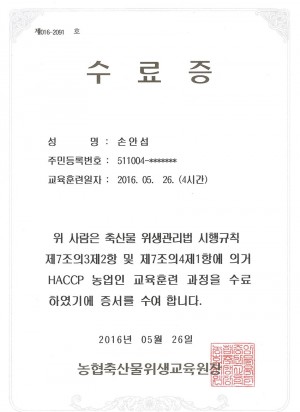
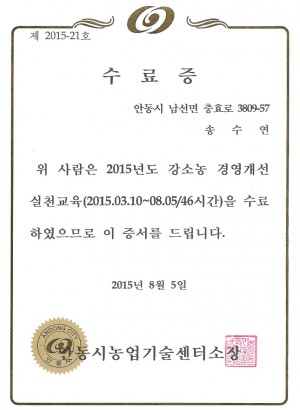
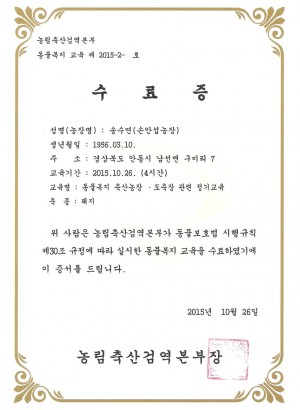
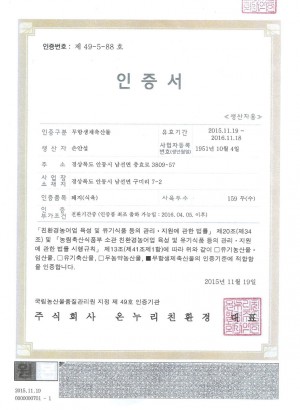
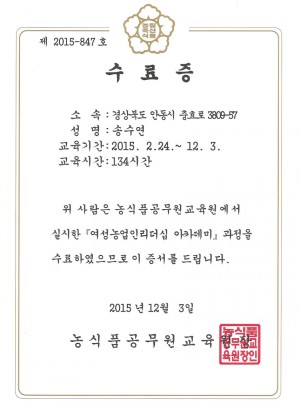
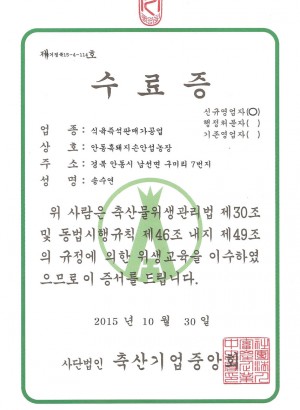
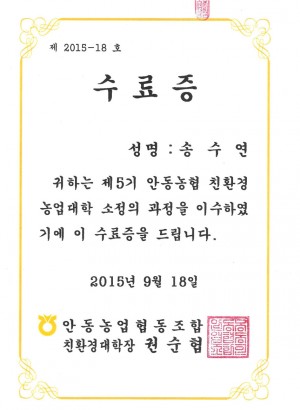
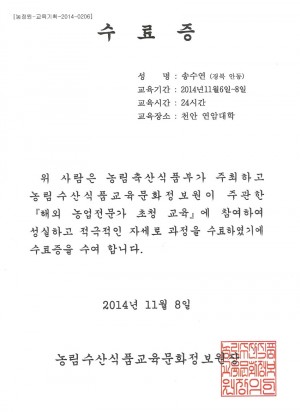

댓글목록
등록된 댓글이 없습니다.